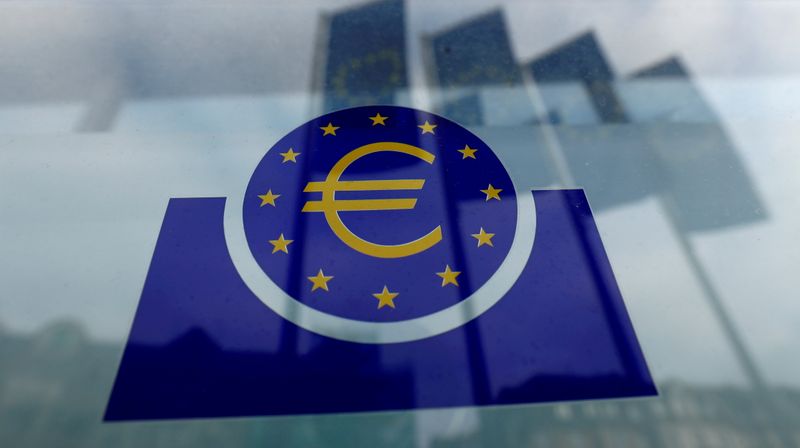FRANKFURT (Reuters) - European Central Bank policymakers set the stage for a June 10 showdown over the future of their emergency bond purchases when they met in April but stopped short of discussing their next move, the account of their meeting showed on Friday.
The ECB, which is already providing record support, has helped the recession-hit euro zone economy through its worst crisis to date. But a robust recovery, coupled with a jump in inflation, will be forcing policymakers to debate whether to start dialling back the ECB's 1.85 trillion euro Pandemic Emergency Purchase Programme (PEPP).
Arguments are stacking up fairly evenly on both sides, suggesting a difficult decision next month.
The latest wave of COVID-19 is receding, economies are reopening and growth is already surging, indicating that the "emergency", a key premise of the ECB's current support measures, is coming to an end.
But the 19-country currency bloc will need another year to grow back to its pre-crisis level, borrowing costs are already getting uncomfortably high, the euro's strength is concerning and inflation, the ECB's primary focus, will continue to languish below its target for years to come.
"The monetary policy meeting in June would provide the next opportunity to conduct a thorough assessment of financing conditions and the inflation outlook," the ECB said in the account of the April 22 meeting.
Policymakers made it clear that even after PEPP, the ECB would provide plenty of support for years to come.
"Ample monetary policy support remained crucial beyond the pandemic period in order to support inflation and return it to the inflation aim," the ECB added.
Even as they recounted risks, policymakers appeared pleased with how the market had reacted to their March decision to speed up bond purchases.
"Recent financial market developments had had a positive effect on financing and financial conditions in the euro area. Sovereign yields and spreads had remained compressed and stock prices had risen, while the euro exchange rate had appreciated only slightly," the account said.
However, they seemed especially concerned about the firming of the euro against the dollar.
"It was underlined that a further appreciation of the exchange rate could have adverse implications for the inflation outlook," the ECB added.
PEPP is set to expire next March at the earliest, but the scheme, now running at around 80 billion euros a month, will not end overnight and could take several quarters to taper.
Several conservative policymakers, including Klaas Knot of the Netherlands and Martins Kazaks from Latvia, have already made the case for starting to step back from PEPP as the recovery gets underway.
But winding down the emergency scheme will be far from the end of ECB support and stimulus is likely to be transferred to the bank's Asset Purchase Programme (APP), which operates under more rigid rules.

The key decision facing policymakers in June will be whether to signal this "rotation" from PEPP to APP is starting or conclude that emergency conditions remain.
They will also need to decide on the volume of bond purchases over the coming quarter and whether the recent rise in bond yields, fuelled in part by rising U.S. borrowing costs, is warranted by the outlook.